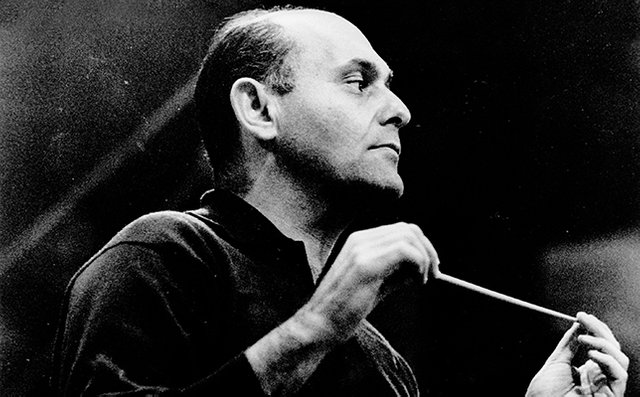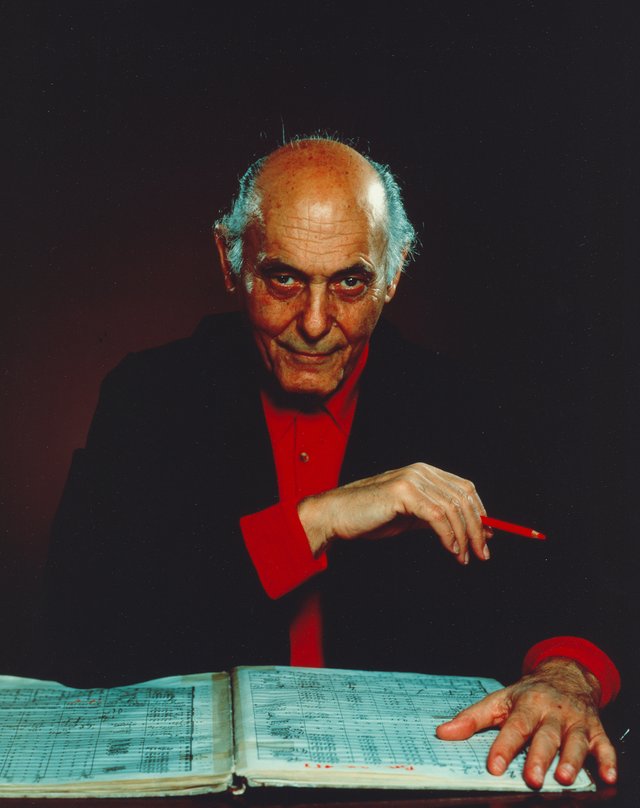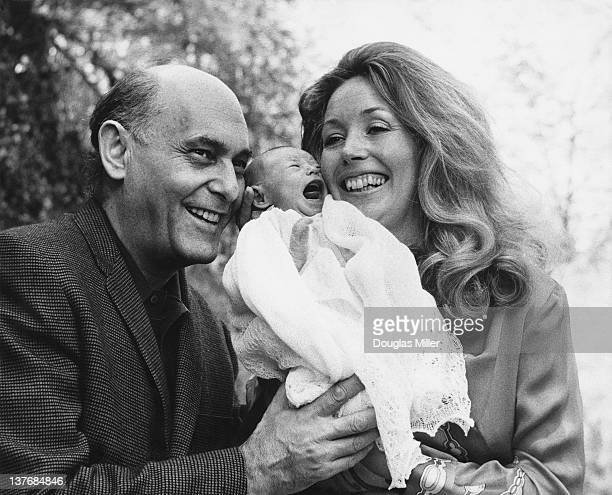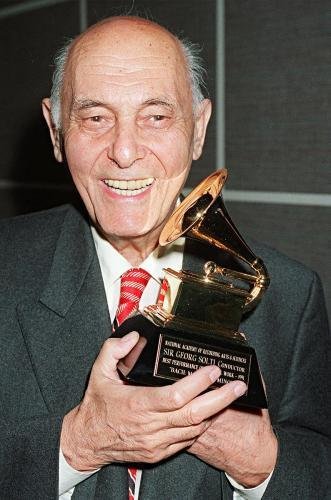Rhapsody of Frenzy!

Some people's lives can be described as calm and waveless, some as blur and mysterious, and some are just rapid and restless. A total insanity and frenzy with ups and downs oceans experience seldom. And yes, this man, Georg Solti had a life just as restless and fearless as an ancient warrior; and it is transpicuous that this madness has found its way to his music. The music he spent decades to make, as a conductor and pianist.
Born as György Stern in a Hungarian family in Budapest, he chose to sail in the sea of music when he was a teenager and as a consequence of years of training by his mother, Teréz Rosenbaum. Teréz, against her husband, was not a religious woman and much more of a support for her children and frankly, the reason Georg began learning piano and studying art. The family somehow was forced to change the surname from Stern to Solti because of subsequent war politics, Georg's father invested almost all of their savings into a community, supporting Hungarian Jews for patriotic aims which soon became worthless, as regards to the WWII consequences. Later in Georg Solti's last years, he described the man as "a kind sweet man who trusted everyone. He shouldn't have, but he did." However, by working hard and proving much valuable in the field of music, Georg Solti managed to remain safe and sound during WWII and after. His professional life is a symbol of complete success and honor.
Before the war, Solti studied with Bela Bartok and worked at Hungarian State Opera. He also was assistant to Otto Klemperer, and worked for Arturo Toscanini for some time, and spent a season working at Royal Opera House, London.
When war started, he sought Swiss citizenship and stayed there until the dust settled; Solti worked as a piano teacher for living, in all his years in Switzerland. Solti was indeed a sensitive pianist, his few piano recordings (such as Bach's concerto) are strong evidences. However, the rise of Solti's name happened when he stepped on the stage as a conductor, before an orchestra dancing under his baton. Georg Solti is - without a doubt - one of the best conductors of the 20th century.

Solti's heart interest was always with the 19th century repertoire, the Romantics such as Beethoven, Mahler and Tchaikovsky. He made a huge contribution with Decca Classics and left a considerable discography, noteworthy in every aspect. He had always a separate ear for opera, songs, dramas and lieds. His infatuation towards human voice was obvious for everyone; and his colleagues, his friends, and his audience respected him for it. Solti, as a conductor, believed in the power of human voice precisely equal to an orchestra with all those strings, brass and woodwinds. This belief, made persistent contributions between Solti and great singers such as Ernst Haefliger, Birgit Nilsson, Kiri Te Kanawa, and Gerhard Stolze.
Following, Solti started to record a great number of operas and dramas by German & Italian composers. In this category, I would name his set of Wagner's dramas as the best exemplar; the set contains the tetralogy cycle of "Der Ring des Nibelungen", "Tannhäuser", "Lohengrin", "Tristan und Isolde", "Die Meistersinger von Nürnberg", and "Parsifal", which we know as Wagner's last work. This collaboration on Wagner's masterworks happened between Georg Solti and the Vienna Philharmonic Orchestra. Next pages of operas by Solti, includes works by Richard Strauss (such as Salome), Giuseppe Verdi (his Falstaff, Otello, La Traviata, etc.) and Wolfgang Amadeus Mozart. In total, Solti ceased to achieve performing 33 operas by 13 different composers. On the stage of opera, Solti's mind was fast and sharp; an artist who could really understand what it takes to perform and interpret operas.

By 1954, Solti made his first appearance with the Chicago Symphony Orchestra, a collaboration which lasted over two decades. Alongside, he was obligated to work with numerous orchestras as well, such as the Metropolitan Opera, Los Angeles Philharmonic, Covent Garden Opera, Vienna Philharmonic, Orchestre de Paris, London Symphony & Philharmonic, Berlin Philharmonic, and so many other orchestras and choirs. With this being said, it is explicit that operas were not enough for an acting conductor like Solti. Hence, along with 45 opera sets he recorded during his time, he also managed to record a notable number of symphonic works; tone poems by Richard Strauss, symphonies by Beethoven, Bruckner and Mahler, are among them. Solti's signature in all mentioned works can be described in so many words, but words like energetic, effusive, and attentive may be above all.

When Georg Solti was 12, he heard Erich Kleiber giving a performance to Beethoven's 5th symphony, and it gave him the ambition to become a conductor. Though his parents could not afford their son's musical education, and his wealthy uncles didn't recognise music as a suitable profession, the young man paid for his own education in music by giving piano lessons, when he was only 13. Three decades later and the world trembled under his baton; and even now, nearly three decades after his death, his recordings still do the same.
Men like Georg Solti earned their high place by themselves and themselves only, and deserve each and every applause they get. May his way of interpretation and conducting be patterns for all musicians...

https://peakd.com/creativecoin/@alefghaf/rhapsody-of-frenzy